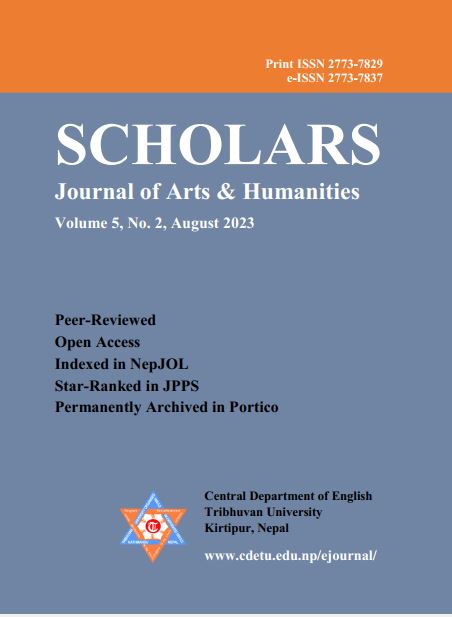Reading Devkota’s Prometheus as a Transnational Text: Intersecting the East and the West
DOI:
https://doi.org/10.3126/sjah.v5i2.57498Keywords:
Western mythology, Prometheus, mythical hero, marginalization, transnational literatureAbstract
This paper reads Laxmi Prasad Devkota’s Prometheus in the backdrop of Percy Bysshe Shelley’s Prometheus Unbound, considering the allegiance of a Nepali writer to a Western canon. Devkota, who had access to the literary trends in the West, has attempted to appropriate the Western tradition of portraying Prometheus as a mythical hero in literary works like Shelly’s and has tried to localize the image of the hero to elevate the marginalized status of the oppressed in Nepali society. Prometheus was unbound like that of Shelly’s and thus unlike that of Aeschylus as bound, Devkota projects this mythical hero in the Western mythology as a savior of the voiceless of his society. Drawing on Peter Morgan’s idea of transnational literature which “would identify that point at which two or more geo-cultural imaginaries intersect, connect, engage with, disrupt or conflict with each other in literary form,” this paper examines Devkota’s Prometheus how it intersects the East and the West in terms of the popular myths of two different societies.
Downloads
Downloads
Published
How to Cite
Issue
Section
License

This work is licensed under a Creative Commons Attribution 4.0 International License.
© Central Department of English, Tribhuvan University and Authors




